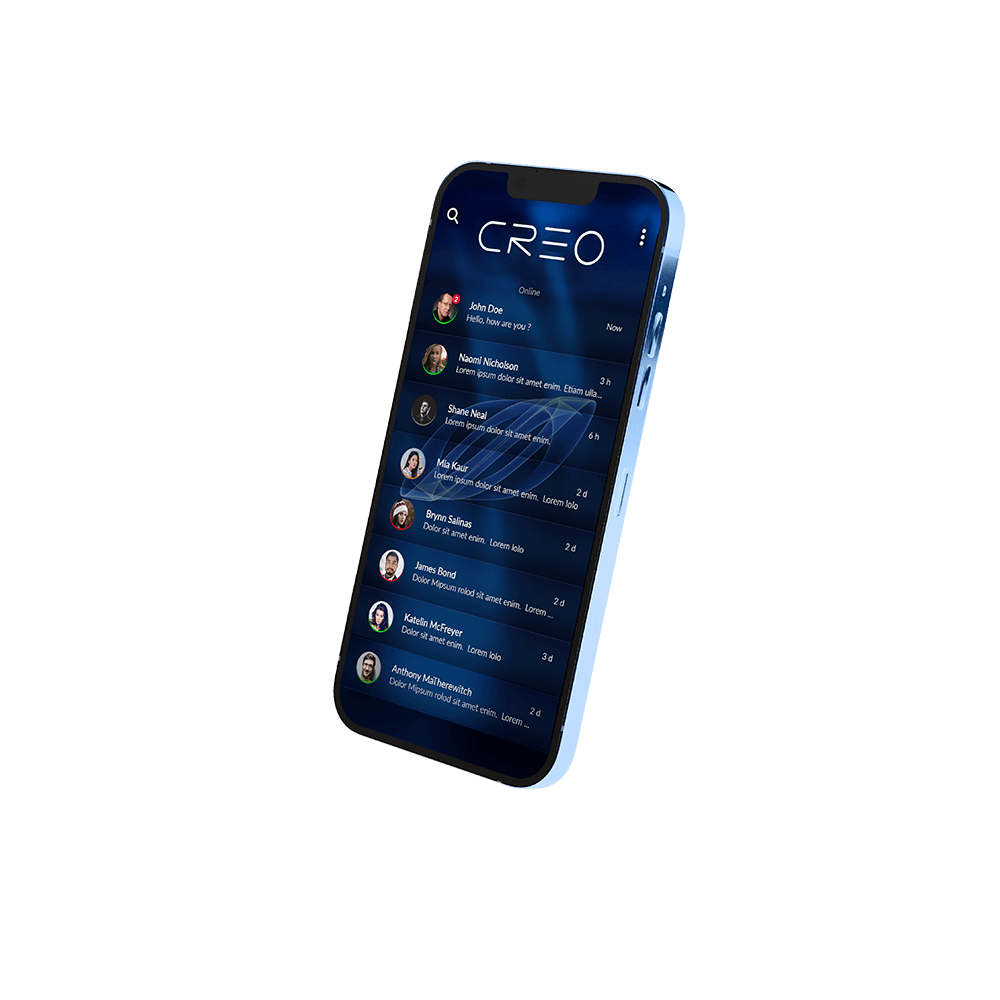What users receive:
- Encrypted 1:1 messaging, secure group chats, flash messages & images
- Voice & video calls, secure conferences, voice & video messages
- Secure notes, encrypted file storage & transfer, Private Chat mode
- User profiles, CREO Auto-Lock, secure login, two-factor authentication (2FA)
- Contact renaming, Wake up call, Basic Panic Mode
- Multi-platform (Android, iOS)
- Multilingual UI, customizable retention policy, device binding
- Update Authentication Checker (only verified generic updates are accepted)
| Definitions | Design | Development | Implementation |
|---|---|---|---|
| ✅ Done | ✅ Done | ⚡ In Progress | ⏳ Pending |


